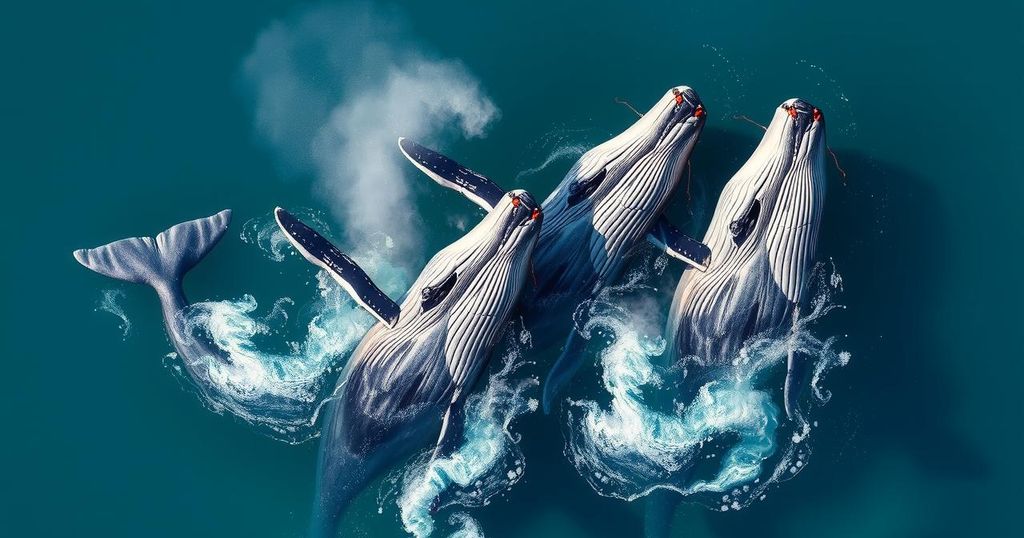Researchers have documented a humpback whale migrating far beyond its normal route, raising alarms about changing behaviors possibly linked to climate change. The study emphasizes the importance of understanding these patterns to enhance conservation efforts, particularly given the fragility of krill populations that sustain these whales. Scientists urge action to mitigate climate impacts for the preservation of marine ecosystems.
Recent observations of a humpback whale in Zanzibar, which strayed significantly beyond the species’ standard migratory route, have sparked concern among scientists. Initially seen off the coast of Colombia years earlier, this whale’s unusual migration may signify noteworthy shifts in behavior due to various influencing factors, including climate change. The study, published in the Royal Society Open Science, underscored the pressing need to understand these patterns as they could herald significant implications for the conservation of humpback populations.
Dr. Ekaterina Kalashnikova, the lead researcher, noted, “The exact reasons are not known, but possible causes include global climate change, extreme environmental events, and evolutionary mechanisms of the species.” The changing climate could drastically affect this migratory behavior, culminating in dire consequences for the whale populations as they seek adequate food sources like krill, which are also threatened by rising ocean temperatures. The destabilization of krill populations could lead to severe consequences, including starvation for the whales in their search for sustenance.
While researchers proposed that enhanced migration might indicate a thriving humpback population due to effective conservation efforts, the prevailing concern is about the potential disruption of marine ecosystems. As per Meteored, understanding the dynamics of these migrations is crucial for formulating effective protective measures amid climate challenges, thereby improving conservation strategies. Other research has identified similar behavioral adaptations across various species, emphasizing the need for strategies targeting environmental pollution reduction to support biodiversity preservation.
Humpback whales traditionally migrate from warmer tropical breeding areas to colder feeding regions. This migration is crucial for their survival and directly linked to their primary food source—krill. Recent findings indicate shifts in migratory patterns that may arise from changing environmental conditions, potentially influenced by climate change. Understanding these shifts is critical, as they elucidate the relationship between climate change and wildlife behavior, particularly among marine species that are integral to their respective ecosystems. Current research efforts signify a pivotal step in addressing the complexities of marine conservation in the face of global warming.
In summary, the unusual migratory behavior of humpback whales sheds light on the broader implications of environmental changes affecting marine life. As researchers delve deeper into the causes and consequences of such behaviors, it is vital to develop strategic conservation measures that address climate impacts. Ultimately, fostering a greater understanding of these patterns will aid in preserving whale populations and maintaining marine biodiversity amidst ongoing environmental challenges.
Original Source: www.thecooldown.com






